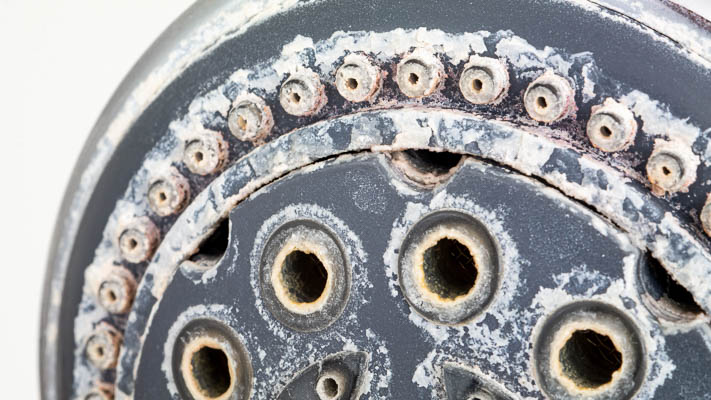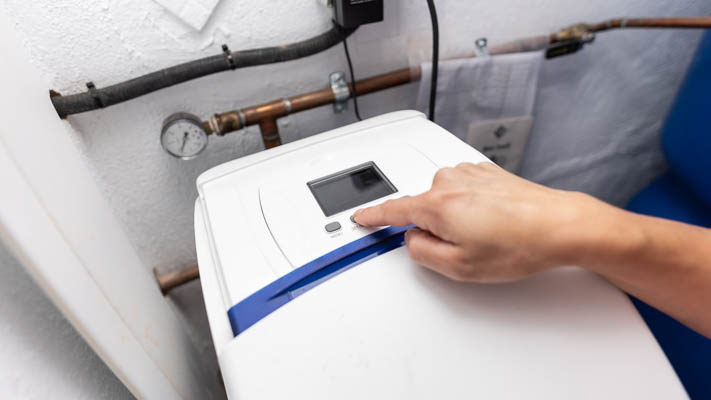How Does Hard Water Affect My Pipes?
Hard water is water that contains high levels of minerals, particularly calcium and magnesium. While these minerals are not harmful to your health, they can wreak havoc on your plumbing system.
Over time, the minerals in hard water can accumulate and form limescale deposits inside your pipes, reducing water flow and leading to clogs. These deposits can also negatively impact appliances like water heaters, dishwashers, and washing machines, reducing their efficiency and lifespan.

In addition to causing mineral buildup, hard water can lead to corrosion in pipes, especially in older homes with metal plumbing such as galvanized steel or trusted materials like copper pipes, resulting in pinhole leaks or pipe failure.
What Does a Water Softener Do?
A water softener is designed to remove the minerals responsible for hard water. The most common method used is ion exchange, where calcium and magnesium ions are replaced with sodium or potassium ions. This process helps prevent the formation of limescale, which, in turn, reduces the risk of mineral buildup in your pipes and appliances.
Water softeners are typically available in three different types:
- Salt-based ion exchange softeners: These are the most common and work by exchanging hard minerals for sodium ions. They are ideal for areas with high levels of hard water.
- Salt-free water conditioners: These systems use a different method to alter the structure of the minerals, preventing them from forming deposits. They're best for areas with mild to moderate hard water.
- Potassium-based softeners: These function like salt-based systems but use potassium chloride instead of sodium. They're a great choice for households concerned about sodium intake.
For more information, check out our article that breaks down how water softeners work and provides example systems.
Will Water Softeners Clean My Pipes?
While water softeners are excellent at preventing additional damage caused by hard water, they won't clean or restore pipes that have already been damaged by limescale buildup or corrosion.
If your pipes are already clogged or weakened due to the long-term effects of hard water, simply installing a water softener won't reverse the damage. Instead, those pipes will need to be replaced.
A water softener will help prevent further buildup, which can stop the problem from worsening. To fully restore your plumbing system and eliminate the existing damage, repiping is necessary.
Should I Combine a Water Softener With a Repipe?
While water softeners help prevent future mineral buildup, they can't fix the existing damage caused by hard water. If your pipes have already been affected by scale or corrosion, a full home repipe is the best solution.
Repiping replaces old, damaged pipes with new ones, restoring water flow, improving water pressure, and preventing further issues. Replacing damaged pipes in a piecemeal fashion can quickly add up, often costing far more than a single full home repipe.
PEX tubing, in particular, is a great choice for homes with hard water. Its smooth internal surface resists scale buildup and corrosion, making it a durable and long-term solution.
Combining a repipe with a water softener ensures that you're tackling both current and future problems, giving you peace of mind that your home's plumbing is protected for years to come.
Contact us to receive a free, fixed-price repipe quote from one of our local repipe consultants.
Get your free estimate today
With over 75,000 repipes completed, we've perfected our One-Stop Repipe™ for your home.
Get a Quote for Repiping Your Damaged Hard Water Pipes
Here at Repipe Specialists, we've fully replaced plumbing in thousands of homes across the USA with modern Uponor PEX tubing. We continually get positive customer feedback from customers about their whole home repipe experiences. We often exceed their expectations on:
- Speed: Our repipe crews typically complete a repipe in a day, returning on another day for wall patching.
- Convenience: Through our One-Stop Repipe™ Process, we handle everything from permits, to wall patching, to inspections.
- Cleanliness: Our crews are trained to protect your home while working (we cover all surfaces with protective sheeting), and to clean up fully at the end of each day.
- Peace of Mind: Repipe Specialists is a fully licensed plumber in every state we operate in, and we back all of our repipes with a lifetime warranty.
- Financing programs: To help take the sting out of unplanned repipe expenses, we offer several financing programs.
- Price: As a specialist that performs hundreds of repipes a week, we can deliver high-quality repipes at a lower cost vs generalist plumbers. Our quotes typically range from $4,500 to $15,000 depending on the size and complexity of your project. We have an article that covers repipe cost factors in detail.
Schedule a free in-home consult, and one of our local repipe consultants will explain all your repipe options and provide you with a written, fixed-price quote. Permanently fix hard water, combine a water softener with a repipe.

